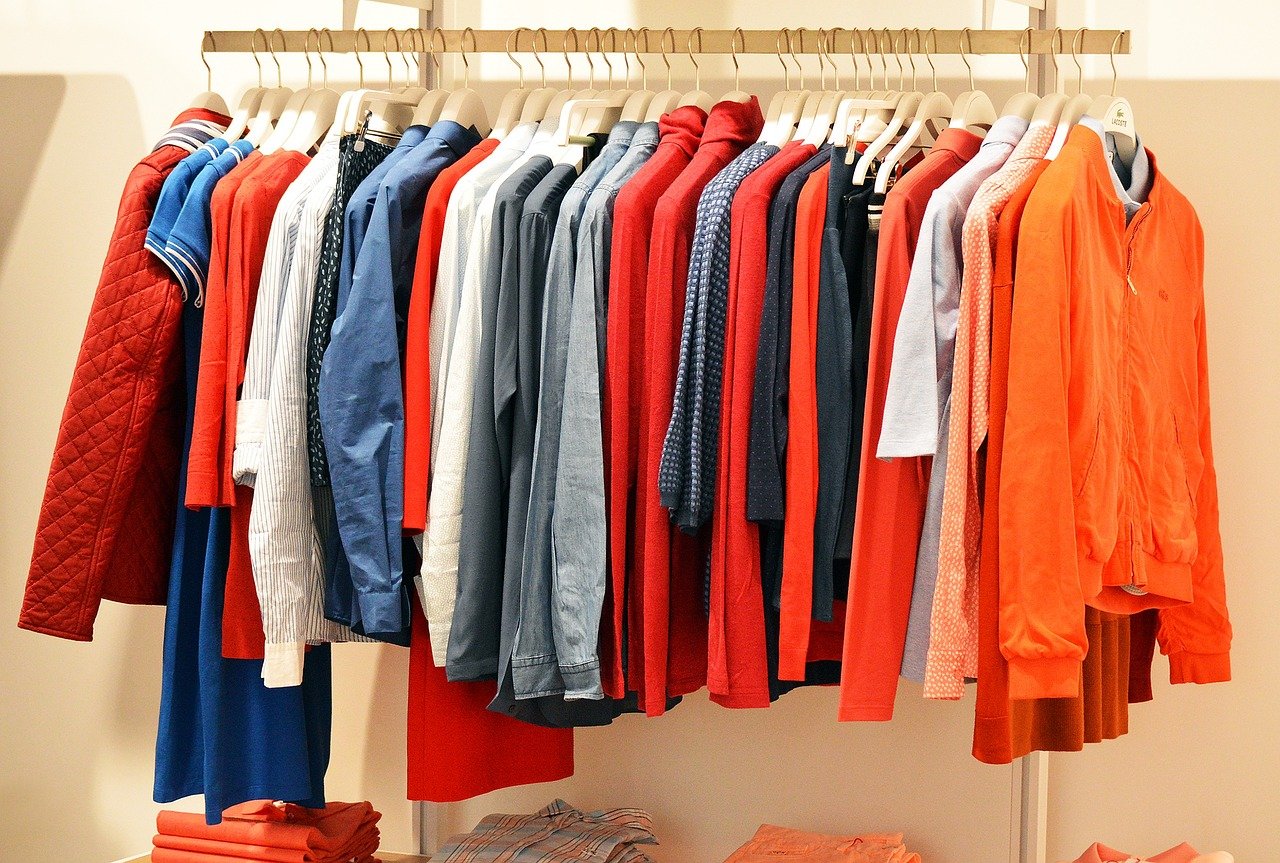What are the most popular clothing brands in 2024?

Introduction
In the world of fashion, certain brands stand out due to their exceptional quality, innovative designs, and influential impact. These brands have not only set trends but have also become synonymous with style and luxury. From high-end couture to accessible streetwear, the top 20 clothing brands in the world showcase a diverse array of fashion that caters to various tastes and preferences. This article delves into the elite of the fashion world, highlighting the unique aspects that make these brands iconic.
History of Global Fashion Brands
From the haute couture houses of Paris to the streetwear hubs of New York, these brands have evolved, reflecting and shaping societal trends.
Early Influences
The roots of global fashion brands can be traced back to the early 20th century, with designers like Coco Chanel and Christian Dior revolutionizing women’s fashion. These early influences set the stage for the global fashion industry, emphasizing elegance and sophistication.
Evolution of Fashion
As fashion evolved, so did the brands. The post-war era saw the rise of ready-to-wear collections, making high fashion accessible to a broader audience. The 1980s and 1990s were marked by the dominance of luxury brands and the emergence of streetwear.
Modern Day Brands
Today, the fashion landscape is dominated by a mix of luxury, fast fashion, and sportswear brands.
Significance of Branding in Fashion
Branding is crucial in the fashion industry, influencing consumer perception and loyalty. Strong brand identity, effective marketing strategies, and a loyal customer base are key components of a successful fashion brand.
Brand Identity
A distinct brand identity sets a fashion brand apart. This includes the logo, design aesthetics, and overall brand ethos. Iconic logos like the Gucci double G or the Nike swoosh are instantly recognizable symbols of quality and style.
Marketing Strategies
Effective marketing strategies are essential for a brand’s success. From traditional advertising to social media campaigns, brands invest heavily in marketing to reach their target audience.
Customer Loyalty
Building and maintaining customer loyalty is vital. Brands achieve this through consistent quality, unique products, and excellent customer service.
Criteria for Ranking Clothing Brands
Several criteria determine the ranking of the top clothing brands, including revenue, popularity, innovation, and sustainability practices.
Revenue
Revenue is a primary indicator of a brand’s success. High revenue reflects a large customer base and strong market presence.
Popularity
Popularity, often measured through social media following and brand mentions, indicates a brand’s cultural relevance and consumer engagement.
Innovation
Innovation in design, materials, and technology sets leading brands apart. Brands that push the boundaries of fashion and embrace new trends tend to dominate the market.
Sustainability
Brands that adopt sustainable practices appeal to environmentally conscious consumers and set new industry standards.
1. Gucci
History
The brand’s history is rich with innovation and high fashion, establishing it as a global leader.
Iconic Products
Gucci’s iconic products, such as the GG Marmont bag and the Horsebit loafer, are staples in the fashion world. These items epitomize the brand’s blend of classic elegance and contemporary style.
Influence on Fashion
Gucci has significantly influenced fashion trends, from its bold prints to its eclectic runway shows. The brand’s creative direction under Alessandro Michele has reinvigorated its global appeal.
2. Louis Vuitton
History
Louis Vuitton, founded in 1854 in Paris, started as a luxury luggage maker. Over the years, it expanded into a full-fledged fashion house, renowned for its craftsmanship and innovative designs.
Signature Collections
Louis Vuitton’s monogram canvas and signature collections, like the Neverfull and Speedy bags, are iconic. These pieces symbolize luxury and exclusivity.
Brand Expansion
The brand has continually expanded its offerings, including ready-to-wear, accessories, and collaborations with artists and designers, further cementing its status in the fashion industry.
3. Chanel
History
Founded by Gabrielle “Coco” Chanel in 1910, Chanel is synonymous with timeless elegance and innovation. Chanel revolutionized women’s fashion with her minimalist yet chic designs.
Classic Designs
Chanel’s classic designs, such as the little black dress and the Chanel No. 5 perfume, are enduring symbols of sophistication. The brand’s tweed suits and quilted handbags remain fashion staples.
Celebrity Endorsements
Chanel’s association with celebrities and influential figures has bolstered its image as a luxury brand. Endorsements by stars like Marilyn Monroe and contemporary icons have maintained its allure.
4. Nike
History
Nike, founded in 1964 as Blue Ribbon Sports, has become the world’s leading sportswear brand. Known for its innovative products and powerful marketing, Nike dominates the athletic wear market.
Sportswear Innovation
Nike’s innovations, like the Air Max and Flyknit technologies, have revolutionized sportswear. The brand’s commitment to performance and style has made it a favorite among athletes and fashion enthusiasts.
Global Reach
With a presence in over 190 countries, Nike’s global reach is unmatched. Its collaborations with athletes and designers have further enhanced its market dominance.
5. Adidas
History
Adidas, founded in 1949 in Germany, is a major player in the global sportswear market. The brand’s three-stripes logo is one of the most recognizable in the world.
Major Collaborations
Adidas has collaborated with various celebrities and designers, including Kanye West and Stella McCartney. These partnerships have expanded its appeal beyond sportswear to high fashion.
Sustainable Practices
Adidas is committed to sustainability, using recycled materials, and promoting eco-friendly initiatives.
6. Zara
History
Founded in 1974 in Spain, Zara is the flagship brand of the Inditex group. Known for its fast fashion model, Zara quickly responds to changing fashion trends.
Fast Fashion Model
Zara’s fast fashion model allows it to bring the latest trends from runway to retail in a matter of weeks. This agility has made it a favorite among trend-conscious consumers.
Market Impact
Zara’s impact on the fashion market is significant, influencing how other brands approach production and distribution. Its success has spurred the growth of fast fashion globally.
7. H&M
History
H&M, founded in 1947 in Sweden, is a global leader in affordable fashion. The brand’s wide range of clothing and accessories caters to diverse consumer tastes.
Affordable Fashion
H&M’s commitment to providing trendy, affordable clothing has made it a popular choice worldwide. The brand’s frequent collaborations with designers offer high fashion at accessible prices.
Sustainability Initiatives
H&M is a pioneer in sustainability, promoting recycling and using eco-friendly materials. Its Conscious collection emphasizes the brand’s commitment to sustainable fashion.
8. Ralph Lauren
History
Ralph Lauren, founded in 1967, embodies American style. The brand’s preppy aesthetic and classic designs have made it an enduring fashion icon.
Preppy Style
Ralph Lauren’s preppy style, characterized by polo shirts and tailored blazers, defines American fashion. The brand’s association with Ivy League culture reinforces its classic image.
Brand Evolution
Over the decades, Ralph Lauren has evolved, expanding into various segments like home decor and fragrances, while maintaining its core fashion identity.
9. Hermès
History
The brand’s dedication to quality and detail is unmatched.
Luxury Accessories
Hermès’ luxury accessories, such as the Birkin and Kelly bags, are coveted items. These pieces symbolize the pinnacle of luxury and exclusivity.
Timeless Appeal
Hermès’ timeless appeal lies in its commitment to tradition and innovation. The brand’s products are not only fashionable but also hold enduring value.
10. Prada
History
Founded in 1913 in Milan, Prada is known for its cutting-edge designs and high fashion appeal. The brand’s minimalist yet bold aesthetics have made it a fashion powerhouse.
Cutting-Edge Designs
Prada’s cutting-edge designs, from its nylon backpacks to avant-garde clothing, push the boundaries of fashion. The brand’s innovative approach keeps it at the forefront of the industry.
Brand Influence
The brand’s collaborations and sponsorships highlight its cultural significance.
11. Versace
History
Founded in 1978 by Gianni Versace, Versace is synonymous with bold, glamorous fashion. The brand’s distinctive style and daring designs have made it a staple in pop culture.
Bold Aesthetics
Versace’s bold aesthetics, characterized by vibrant prints and luxurious fabrics, make a statement. The brand’s Medusa logo is a symbol of opulence and power.
Pop Culture Impact
Versace’s impact on pop culture is significant, with its designs frequently appearing in music videos and celebrity wardrobes.
12. Burberry
History
Founded in 1856 in England, Burberry is a quintessential British brand. Known for its trench coats and distinctive check pattern, Burberry blends heritage with modern fashion.
British Heritage
Burberry’s British heritage is reflected in its classic designs and timeless appeal. The brand’s trench coat is an iconic piece that embodies British style.
Iconic Trench Coat
The Burberry trench coat, designed by Thomas Burberry, is a fashion staple. Its durability and style make it a favorite among fashion enthusiasts.
13. Uniqlo
History
Founded in 1949 in Japan, Uniqlo is known for its minimalist design and innovative technology. The brand’s focus on simplicity and functionality has garnered a global following.
Minimalist Design
Uniqlo’s minimalist design philosophy emphasizes clean lines and neutral colors. This approach appeals to consumers seeking versatile and timeless clothing.
Technological Innovation
These advancements set the brand apart in the fast fashion market.
14. Givenchy
History
Founded in 1952 by Hubert de Givenchy, the brand is a beacon of haute couture. Givenchy’s elegant designs and modern influence have made it a favorite among celebrities and fashionistas.
Haute Couture
Givenchy’s haute couture creations are renowned for their sophistication and elegance. The brand’s custom-made pieces reflect the pinnacle of fashion artistry.
Modern Influence
Givenchy continues to influence modern fashion with its contemporary designs and high-profile collaborations.
15. Balenciaga
History
Founded in 1917 by Cristóbal Balenciaga, the brand is known for its avant-garde designs and artistic approach. Balenciaga’s influence on fashion is profound, with its innovative silhouettes and experimental styles.
Avant-Garde Designs
Balenciaga’s avant-garde designs challenge conventional fashion norms. The brand’s creative direction emphasizes bold, unconventional aesthetics.
Market Presence
The brand’s cutting-edge approach appeals to a modern audience.
16. Dior
History
Founded in 1946 by Christian Dior, the brand is synonymous with elegance and luxury.
Elegant Styles
Dior’s elegant styles, characterized by structured silhouettes and luxurious fabrics, set the standard for high fashion. The brand’s timeless designs continue to inspire.
Brand Expansion
Dior has expanded its offerings to include beauty products, accessories, and fragrances. This diversification enhances the brand’s appeal and market presence.
17. Armani
History
Founded in 1975 by Giorgio Armani, the brand epitomizes sophisticated design and timeless elegance. Armani’s minimalist yet luxurious approach has made it a favorite on red carpets.
Sophisticated Design
Armani’s sophisticated design philosophy focuses on clean lines and understated elegance.
Red Carpet Presence
Armani’s strong presence on the red carpet highlights its status as a luxury brand. Celebrities frequently choose Armani for its timeless and chic designs.
18. Levi’s
History
Founded in 1853 by Levi Strauss, Levi’s is an iconic American brand known for its denim innovation. The brand’s jeans have become a cultural symbol of style and rebellion.
Denim Innovation
Levi’s denim innovation, from the original 501 jeans to modern fits, has set the standard in the industry.
Cultural Impact
Levi’s cultural impact extends beyond fashion, symbolizing individuality and freedom. The brand’s association with various social movements highlights its cultural significance.
Conclusion
The top 20 clothing brands in the world each bring unique elements to the fashion industry. From luxury to fast fashion, these brands shape trends and influence consumer behavior. As fashion continues to evolve, these brands will likely remain at the forefront, driving innovation and setting new standards.
FAQs
What makes a clothing brand successful?
A successful clothing brand combines a strong brand identity, innovative designs, effective marketing, and customer loyalty. Sustainability and social responsibility also play crucial roles in modern success.
How do luxury brands differ from fast fashion brands?
Luxury brands focus on high-quality materials, craftsmanship, and exclusivity, often with higher price points. Fast fashion brands emphasize quick production, affordability, and the latest trends, making fashion accessible to a broader audience.
Why is sustainability important in fashion?
Sustainability is crucial in fashion to minimize environmental impact, reduce waste, and promote ethical practices. Consumers are increasingly prioritizing eco-friendly brands, pushing the industry towards more sustainable practices.
How do collaborations influence fashion brands?
Collaborations can enhance a brand’s appeal by merging different styles and reaching new audiences. High-profile partnerships often generate buzz and drive sales, benefiting both parties involved.
What role do celebrities play in the success of fashion brands?
Celebrities influence fashion trends and consumer behavior. Their endorsements and collaborations with brands can boost a brand’s visibility and credibility, making it more appealing to a wider audience.
How has digital marketing impacted fashion brands?
Digital marketing has revolutionized the fashion industry, allowing brands to reach global audiences through social media, influencer partnerships, and online advertising. It enables real-time engagement and targeted marketing strategies, driving brand growth and customer loyalty.




